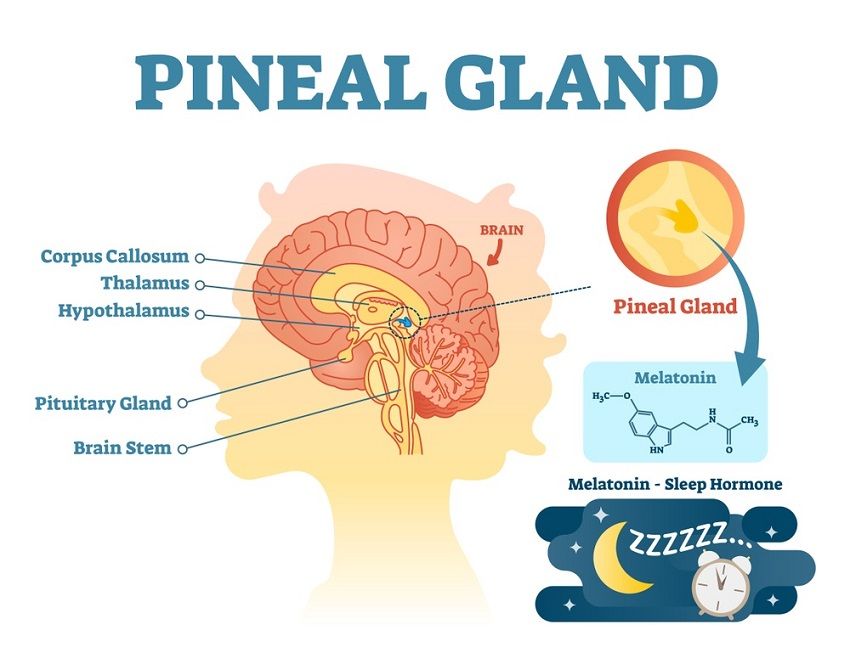- Jun 24,2023
- Posted by: Savion
- Category:

It is a small gland shaped like a pea in the brain, playing an important role in many bodily functions. However, scientists have not been able to unlock all of its secrets.
The pineal gland secretes the hormone melatonin, which has a role in mood and mental state. Melatonin plays a role in regulating the sleep-wake cycle in humans, which is why some refer to it as the "sleep hormone."
However, this designation is not entirely accurate, as it only refers to its relationship with sleep.
When melatonin is released at night, it helps the brain recognize that it's time to sleep, while the body stops secreting the hormone at dawn to aid in waking up.
The natural melatonin hormone produced by the body at night helps the brain differentiate between morning and evening times, regulating sleep cycles and linking them to the timing system we live in.
High levels of melatonin contribute to deep sleep, and its secretion is time-dependent as follows: it rises in the evening, decreases in the morning, and exposure to light at night stops its secretion. Melatonin is known as the "body clock hormone" and is secreted after the brain converts tryptophan into serotonin, and then into melatonin.
The pineal gland performs several important roles, including sleep regulation, cardiovascular health, regulation of gland function, aiding in female hormone regulation, and regulating the menstrual cycle.
Dysfunction of the pineal gland can lead to mood disorders, mental health problems, and increase the risk of schizophrenia. Additionally, malfunctioning of the pineal gland can lead to cell damage and increase the risk of cancer.
If you're experiencing sleep disturbances, it may be a sign that the pineal gland is not functioning properly.
Early symptoms of pineal gland tumors include seizures, memory impairment, headaches, nausea, vision problems, and other sensory issues.

